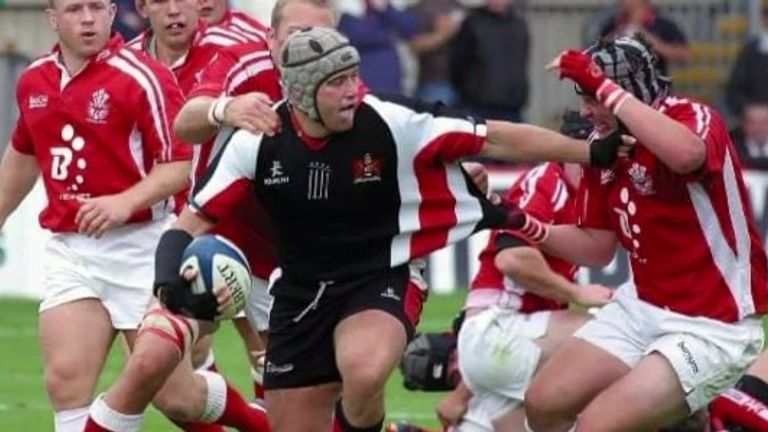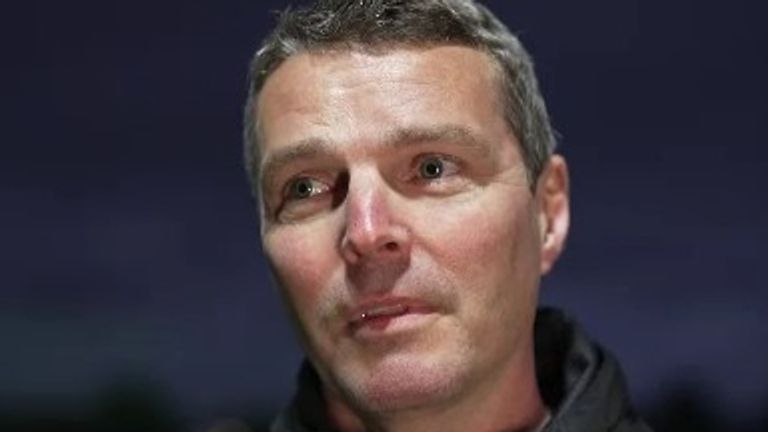Rugby tackle height to be lowered as concerns over concussions and head injuries grow | UK News
From next season, the legal tackle height in community rugby will be lowered from below the shoulders to the base of the sternum in a move to address concerns over injuries and concussion in the sport.
The change will apply across the community game and will be implemented in clubs, schools and universities – at both age-grade and adult levels.
The Rugby Football Union (RFU) says the change has been informed by data and is designed to improve player safety by reducing head impact exposure and concussion risk.
“A lot of injuries have occurred, head injuries have occurred, because of the high tackles,” says David Fraser, training workforce manager at the RFU.
“By reducing the tackle height we anticipate seeing a huge reduction in head injury, or possibly up to 4,000 fewer head injuries a year, which will make the game safer,” he said.
But former Wales international Lenny Woodward isn’t convinced.
In 2021, at the age of just 45 years old, he was diagnosed with early onset dementia which he says is caused by concussions sustained by numerous knocks to the head during his career.
“It’s good that they have recognised there needs to be some sort of change,” he said.
However, he is concerned it is being aimed at the wrong players, and questions whether professional participants should trial the new laws before the community levels.
“Personally, I would have liked to see that change being made at the top level so people can see how it could be implemented with players who are training hours and hours a day to get it right – rather than at the lower levels where I am worried we are at risk of losing players to the game.”
Lenny says he would like to see a reduction of tackle training in the sport, as hours can be spent at training trying to perfect a tackle, as well as “better tackle techniques” being taught at early stages of training.
But crucially, he says, anyone suspected of concussion should be removed and automatically be out of the game for at least three weeks.
However, coaches receiving training on the new laws at Battersea Ironsides sport club in southwest London think the step is a move in the right direction.
Read more:
Guidance on heading introduced
New concussion guidelines for athletes
Kate Digby coaches the under nines who are currently playing tag rugby, but will be learning the contact sport in the new season.
“Hopefully as they are starting young we don’t have to change any bad habits and it will become second nature to them,” she told Sky News.
Angus Phillipson, who coaches children from under fives and up to under 11s, thinks the new laws will help improve inclusivity.
“[What] it will bring about is probably an increase in participation, more diversity in the game,” he says.
“It’s a game that’s maybe became a bit too focused on the hits and physicality,” he added.
“Lowering the tackle height and encouraging people to pass ball and a little more will encourage more people to play the game.”



